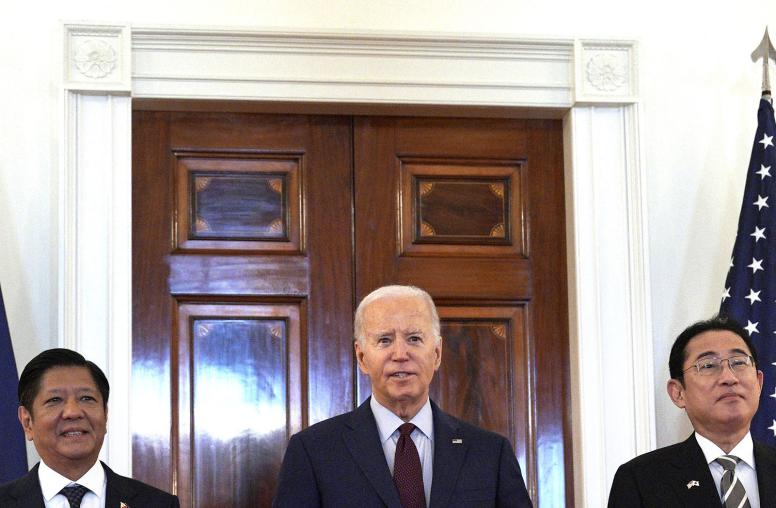The Deteriorating Situation in the Southern Philippines
--David Smock

Father Mercado speaks at the podium during the event.
The conflict in the southern Philippines has worsened in recent months. In July, Philippine Marines were ambushed by the Moro Islamic Liberation Front (MILF) on the Philippine island province of Basilan, purportedly by the militant Abu Sayyaf forces. In addition, the Philippine military's continuing efforts to eliminate Abu Sayyaf remnants on the island province of Sulu have alienated Moro National Liberation Front (MNLF) commanders who increasingly oppose and resist the military's operations.
Meanwhile, negotiations between the government of the Republic of the Philippines (GRP) and the MILF have been suspended for a year over the issue of ancestral domain. Growing U.S. military presence and involvement in the conflict could complicate the possibility of a negotiated resolution to the GRP-MILF conflict.
In order to analyze this situation, Father Eliseo "Jun" Mercado, a recognized expert on the role of Islam in Southeast Asia and the Philippines, recently discussed at USIP the continued stalemate between the Philippine government and the two main Moro revolutionary organizations, recent developments, and prospects for the future.
Speakers
- Father Eliseo "Jun" Mercado
 Download biography
Download biography - G. Eugene Martin, Discussant
U.S. Institute of Peace - David Smock, Moderator
U.S. Institute of Peace
Archived Audio
To listen to audio or to view video, please click on the links provided below. You also can right click on the links and choose "Save Target As" or "Download Linked File." This will save the file to your computer and then allow you to play it in your media player directly. More Audio Help.
- Listen to the audio from this event.
1:52:42 - 20.5MB



